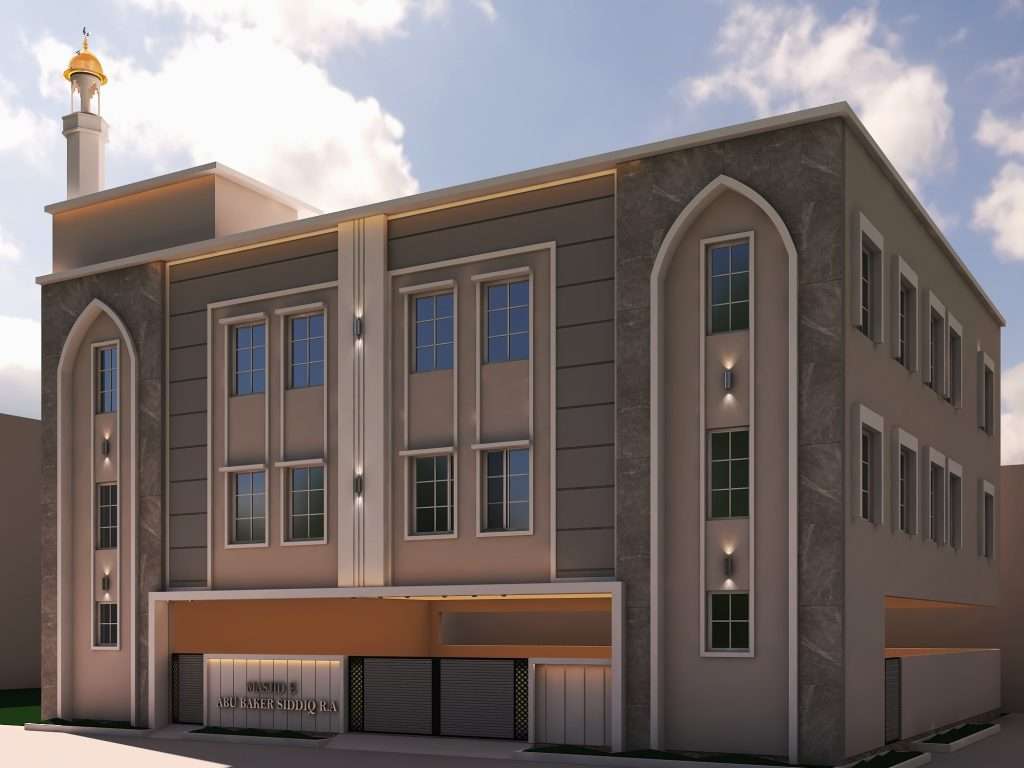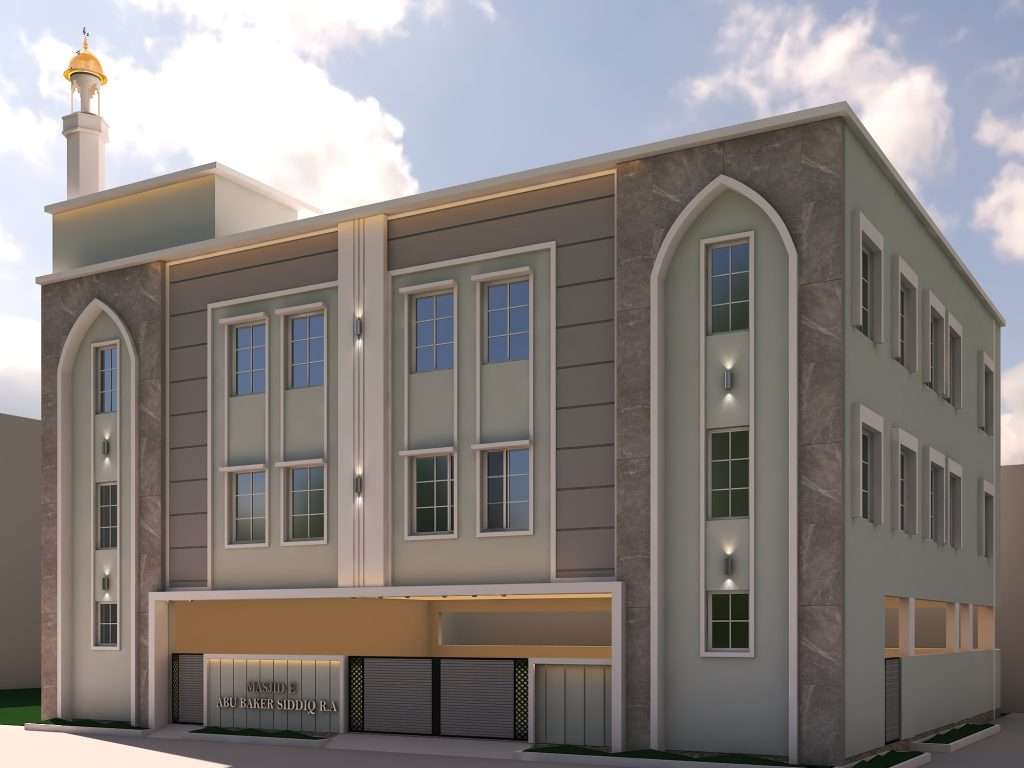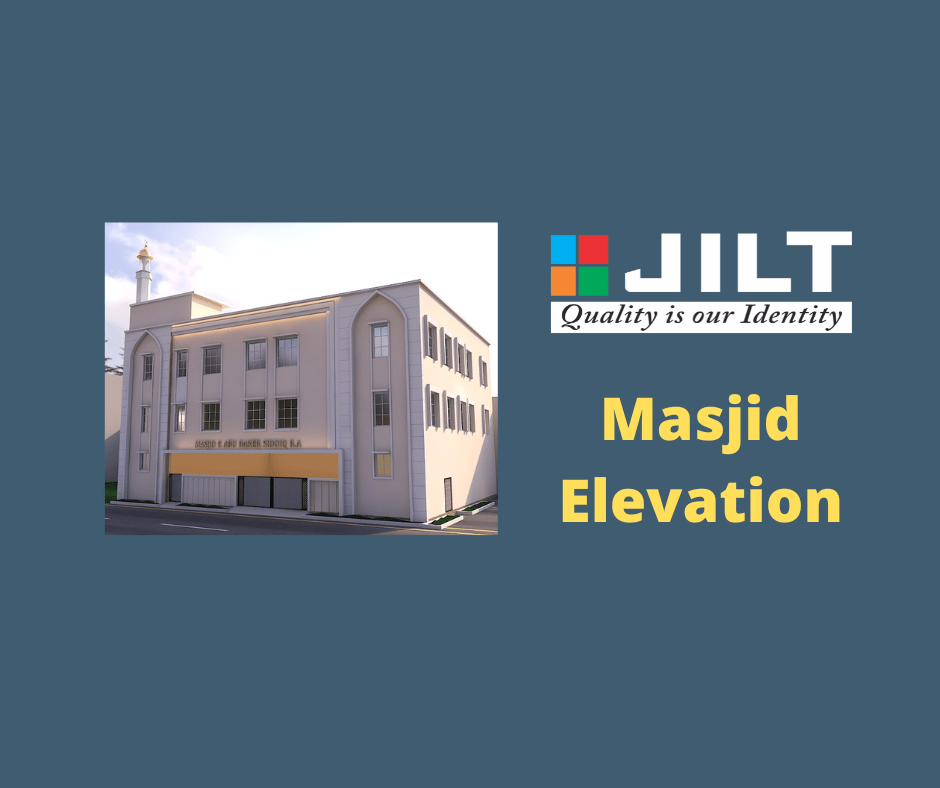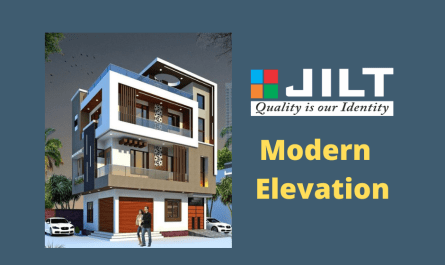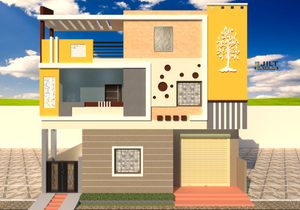Designing the elevation of a mosque (masjid) is a significant aspect of creating a space that is not only functional but also culturally and aesthetically rich. Below are key elements and considerations for designing a masjid elevation:
1. Architectural Style:
- Choose an architectural style that reflects the cultural and historical context of the community.
- Consider traditional Islamic architectural styles, such as Ottoman, Persian, or Moorish.
2. Minaret Design:
- Design minarets with attention to height, proportion, and decorative elements.
- Incorporate balconies, arches, and traditional Islamic motifs into the minaret design.
3. Entrance Design:
- Create a distinctive and welcoming entrance with decorative arches or a grand portal.
- Consider the use of calligraphy, intricate patterns, or traditional tile work around the entrance.
4. Facade Design:
- Incorporate Islamic geometric patterns, arabesques, or calligraphy on the facade.
- Use materials such as stone, brick, or decorative tiles that complement the local environment.
5. Windows and Ventilation:
- Plan for well-placed windows to allow natural light while maintaining privacy.
- Consider using traditional elements like stained glass or wooden lattice screens (mashrabiya).
6. Materials:
- Choose durable and weather-resistant materials that align with the local climate.
- Incorporate decorative elements using materials such as marble, mosaic tiles, or traditional brickwork.
